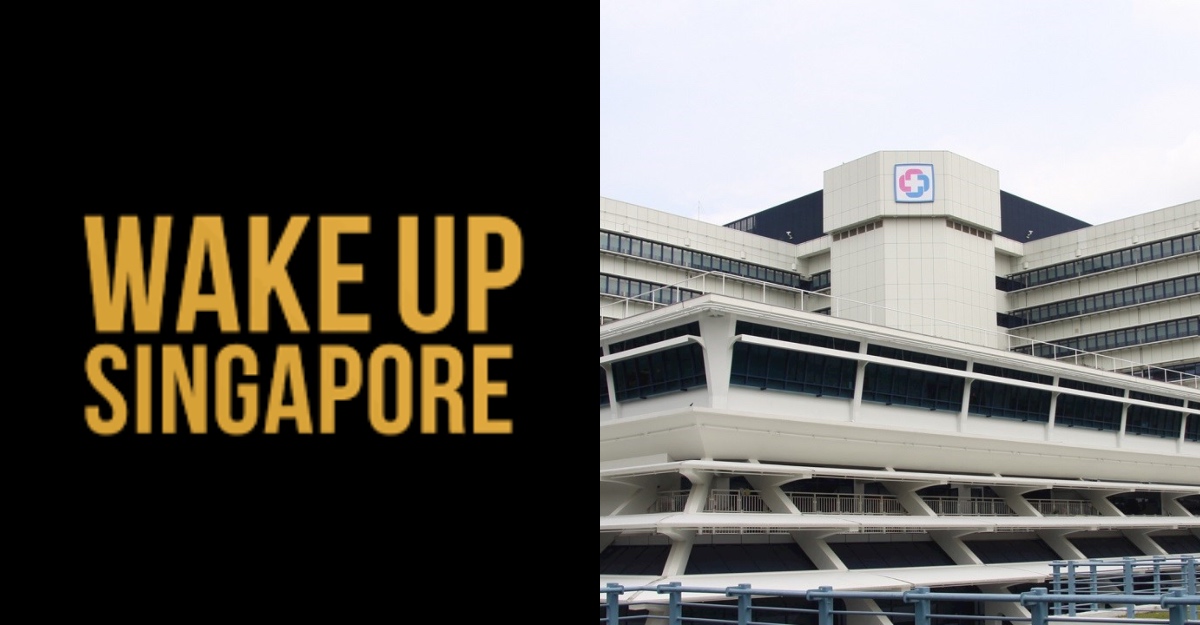General Election is upon us now and it’s time to get educated on the different political parties that will be contesting in the upcoming election.
Who are they? What do they stand for? What is their track record?
In this series, we will cover everything you need to know about the party so you can have a better understanding of what they’re about before you cast your votes.
Following our breakdown of the other political parties in Singapore, we are casting the spotlight on the Reform Party (RP) this time round.
A Quick History Of RP
The Reform Party was formed in July 2008 by the late opposition veteran and lawyer J. B. Jeyaretnam.
He is known as the former Secretary-General of the Workers’ Party (WP) from 1971 to 2001, and the first opposition candidate in post-independence Singapore to be elected Member of Parliament in 1981 under the Workers’ Party when he won the by-election at Anson.

This was after a period of about 16 years when not a single opposition candidate in Singapore won a seat.
However, he lost his seat in parliament twice in 1986 and 2001.
In 1986, he was jailed and fined for making a false declaration in WP’s accounts and as a result, he had to vacate his seat and was disqualified from parliament until 1991.
He stood for elections again only in 1997, this time in the Cheng San GRC. Although his team lost to PAP with 45.2 per cent of the votes, it was the highest percentage of votes among all the election losers.
As a result, the party was asked to nominate a candidate for the post of NCMP. Jeyaretnam was chosen to take up the seat.
Known for his fiery speeches at rallies — which earned him the nickname “The Tiger” — and his scathing attacks on the PAP and its system of government, Jeyaretnam was the subject of several defamation suits.
He was sued by PAP leaders, then-Senior Minister Lee Kuan Yew and then-Prime Minister Goh Chok Tong over defamation and was declared bankrupt in 2001 after failing to pay his charges.

He consequently lost his NCMP seat and was also not eligible to take part in an election until he cleared all his debts. In October that year, he resigned from WP, as he was upset that the party leaders did not help him pay off his debts.
Discharged from bankruptcy in 2007, he then formed the Reform Party.
Around three months after the party’s foundation, Jeyaretnam passed away though he had announced plans to contest in GE 2011.
The party’s leadership has since been taken over by his son Kenneth Jeyaretnam.
What Do They Stand For?
The Reform Party has long campaigned for a better deal for Singaporeans.
According to the party’s constitution, it seeks to promote “political, social and economic reform; the restoration of full human rights; a fairer and just distribution of wealth with the elimination of poverty; an independently appointed judiciary and a fully elected and sovereign parliament.
In their GE 2020 manifesto, the party wants to “replace the PAP deal of austerity for the ordinary Singaporean but opulent and in many cases secret salaries and riches for the PM and his wife, PAP Ministers and their spouses and their supporters”.

Titled “Build Back Better, Fairer”, the party wants to capitalise on the opportunity to turn the negative of a pandemic into the positive of rebuilding Singapore for Singaporeans.
They have cited the example of the foreign worker dormitory operators. The RP has expressed that their excess profits have come at the expense of public safety and their mistakes will be compensated out of the pockets of ordinary Singaporeans and not from the pay packets of our ministers.
In their GE 2020 manifesto, they expressed that Singapore is already over-reliant on global trade and the Government’s economic model of over-saving and running huge Budget and current account surpluses.
While they have said they do not criticise the relatively large and unprecedented amounts that the Government is spending in an effort to protect Singaporeans’ jobs and livelihoods, they believe that it is still not enough.
They want to “build a better and fairer society for Singaporeans, not just an elite few”.
What Do S’poreans Think About RP?
The RP has fielded some controversial candidates in the 2015 General Election including blogger Roy Ngerng and lawyer M. Ravi.
They were part of the team that contested in Ang Mo Kio GRC headed by Prime Minister Lee Hsien Loong.
Roy Ngerg was found guilty in 2014 for a blogpost that had allegedly defamed Lee Hsien Loong and was sued by the latter, eventually being ordered by the Court to pay $150,000 to Lee in damages in 2015.
M Ravi is probably the most controversial lawyer in Singapore. Admired for his courage to take on “hopeless cases,” there are some who wondered in earlier days, if he did what he did for the sake of publicity.

He was diagnosed with bipolar disorder in 2006 and had a disciplinary hearing against him in August 2015 regarding his conduct in several different instances in February 2015.
He was also issued a directive to stop his legal practice, pending a medical examination, after it received information relating to his “impaired fitness to practise”.
As a result, this has led Singaporeans to question the Reform Party’s choice of candidates.
Ahead of GE 2020, memes and jokes surrounded Charles Yeo’s Ang Mo Kio GRC constituency broadcast where he clearly struggled with poor Mandarin and left the Internet amused.
Past General Election Results
In their inaugural election, the party garnered only 31.8 per cent of the votes contested in Ang Mo Kio and West Coast GRCs in 2011.
A by-election in Punggol East SMC was held in 2013 after the resignation of former parliamentary speaker Michael Palmer at the end of 2012.
Secretary-general Kenneth participated in the by-election, but was defeated by WP’s Lee Li Lian in a rare four-cornered contest.
In GE 2015, they had garnered only 20.60 per cent of the votes on the three constituencies contested, or 2.63 per cent of the overall popular vote, marking their worst performance in history.
Where Will They Be Contesting?
For GE 2020, they are only contesting in two constituencies, namely Ang Mo Kio GRC against Lee Hsien Loong’s team and Radin Mas SMC with RP member Kumar s/o Appavoo.
Just last week, Nee Soon GRC MP K. Shanmugam had said the Progress Singapore Party (PSP) had offered to trade Nee Soon to the Reform Party for another constituency.
The RP subsequently accused the PSP for not living up to an agreement so that they could avoid a three-way fight with the PAP in Yio Chu Kang SMC. In response, the PSP argued that no such agreement existed.
Disclaimer: Vulcan Post does not support or endorse any political parties.
Check out our General Election 2020 microsite for more election-related content.
Featured Image Credit: Reform Party via Facebook








